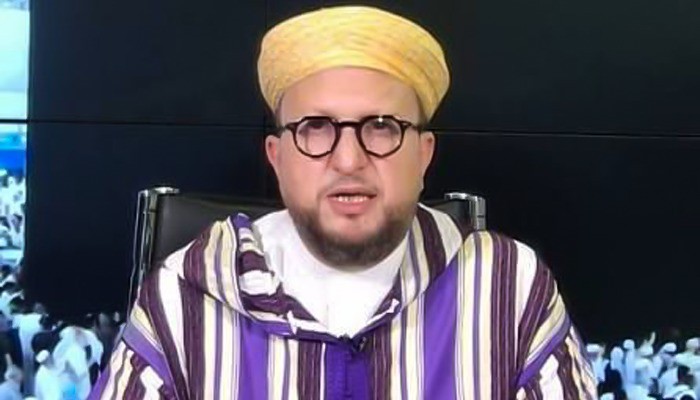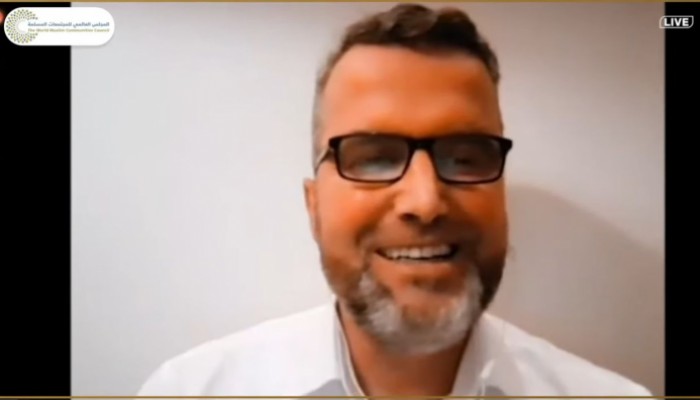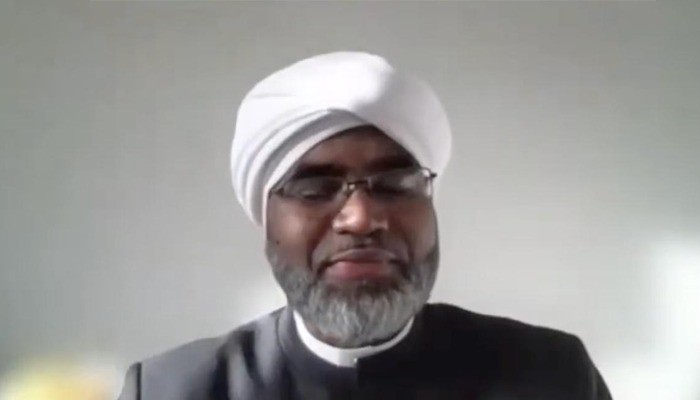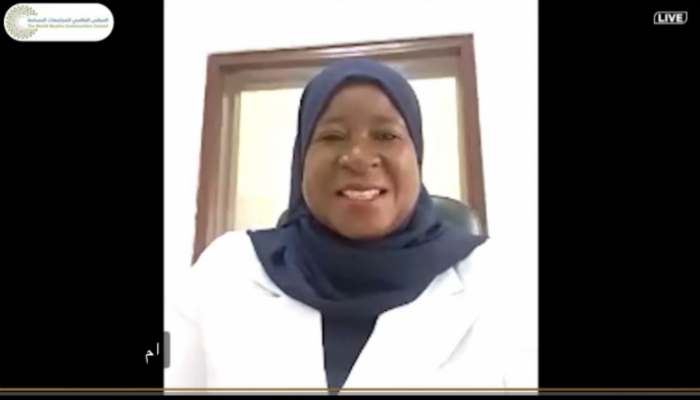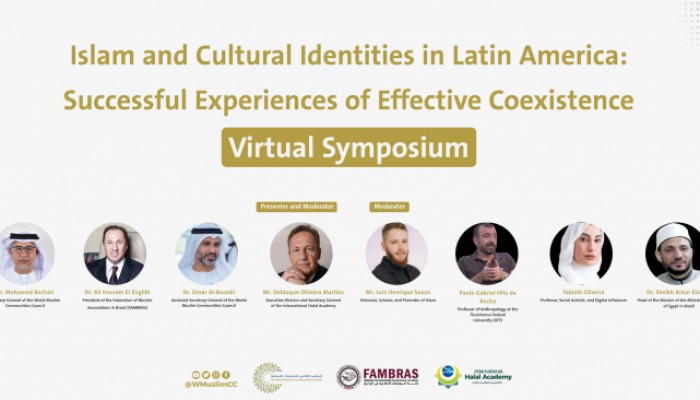
TWMCC Holds Seminar Titled 'Islam and Cultural Identities in Latin America Successful Experiences of Effective Coexistence'
- 2025-Aug-11
The World Muslim Communities Council (TWMCC) convened a virtual panel discussion addressing cultural pluralism, ideological diversity, and ethnic variation within Latin American societies, along with the role of Muslim communities in fostering effective coexistence. Esteemed academics and scholars specialising in Latin American contexts, particularly Brazil, joined the conversation.
During the seminar, Dr Mohamed Bechari, the Council’s Secretary‑General, underlined that the Council has initiated efforts to promote a culture of dialogue and build humanitarian alliances to combat hatred and extremism
He emphasised that dialogue is not a matter of boasting or courtesy but a strategic choice and civilised stance against extremism, racism, and the manipulation of religion
He noted that Muslims beyond the Arab world are not marginal minorities but active members contributing to their societies’ cohesion, citing Brazil, celebrated for its rich cultural diversity, as an ideal environment to launch such dialogue
Dr Bechari further articulated that Islam is a faith of peace and mutual recognition, that diversity is a universal norm fostering human understanding and civilizational cooperation, and that major religions converge in their universal values human dignity, justice, and environmental stewardship.
He concluded with a call to modernise religious discourse engaging youth, empowering women, and tackling contemporary challenges
Dr Omar Al‑Buraiki, the Council’s Assistant Secretary‑General, explained that the Council aims to establish a collaborative framework serving humanity and society
He outlined ongoing efforts to activate digital dialogue platforms connecting intellectual and religious leaders from Latin America and the Islamic world
Mr Al‑Buraiki revealed plans for a series of virtual and in‑person seminars on citizenship, identity, plurality, and religion’s role in countering extremism
He emphasised support for youth networks promoting dialogue, understanding, and coexistence, along with training Latin American religious and community leaders to engage thoughtfully and moderately with contemporary issues
He also affirmed the Council’s support for COP30 in Brazil, highlighting the importance of religious values in environmental protection and cultivating a shared climate ethics. “We aspire to a more dignified humanity, a more connected world, and a more peaceful future, God willing,” he asserted
Dr Paulo Gabriel Hilu da Rocha Pinto, Professor of Anthropology at the Federal Fluminense University (UFF), emphasised the integration of Muslim communities in most countries predominantly Sunnis, with internal diversity.
He noted the presence of Sufis in Brazil, Argentina, and Chile, and of Shia in Trinidad and Tobago, illustrating peaceful coexistence through such diversity
He added that migration shapes communities’ identity and religious orientations, including Ahmadi and Alawite groups from Syria, Turkey, and beyond, reflecting multiple cultural, ideological, and left‑leaning tendencies across Latin American societies.
He concluded by noting that openness to other cultures is deeply ingrained in Latin American cultural identity
Ms Fabiola Oliveira, academic, social activist, and digital influencer, emphasised that discussions of Islam and cultural identity must begin with the colonial history particularly the forced arrival of African people as slaves to Latin America, especially Brazil, and their contributions to the propagation of Islam among Brazilians
She explained that Islam has become inseparable from the identity of Brazilian Muslims, with conversion often representing a deeply personal identity choice.
She highlighted the emergence of social dialogue among diverse ideologies, including Muslim perspectives, as reinforcing Brazilian identity through non‑racial citizenship values.
Ms Oliveira acknowledged challenges faced by Muslim women in Brazilian society, noting their resilience in overcoming them as integrated members of society.
She remarked that while mosques serve as key symbols and markers of Muslim identity, they are lacking in some Brazilian cities still, they play a vital role in promoting inter‑denominational and inter‑religious dialogue and in embedding effective principles of coexistence
Finally, Dr. Ali Hussein El Zoghbi, President of the Federation of Muslim Associations in Brazil (FAMBRAS), affirmed the utmost significance of this seminar both across Latin America and especially in Brazil.
He emphasised that Brazil’s identity, embracing cultural and ideological pluralism underpins successful coexistence
He concluded by highlighting that Islam advocates for tolerance and coexistence through action, not merely words, and that holding true to Islamic teachings is not incompatible with living harmoniously within diverse societies




